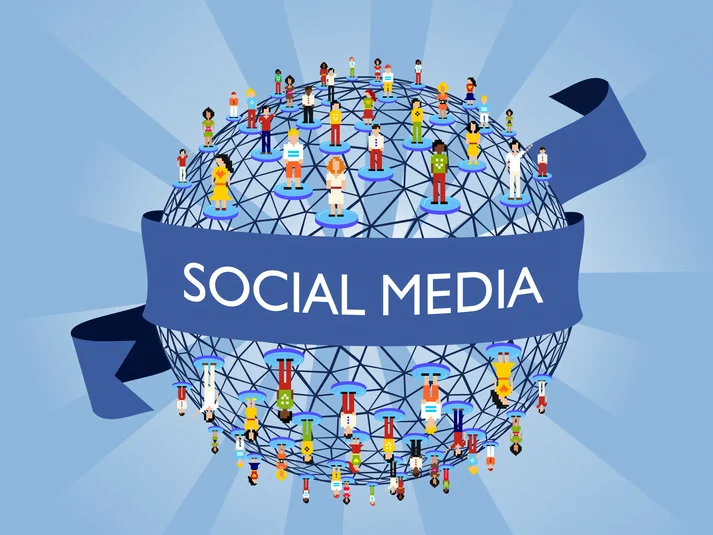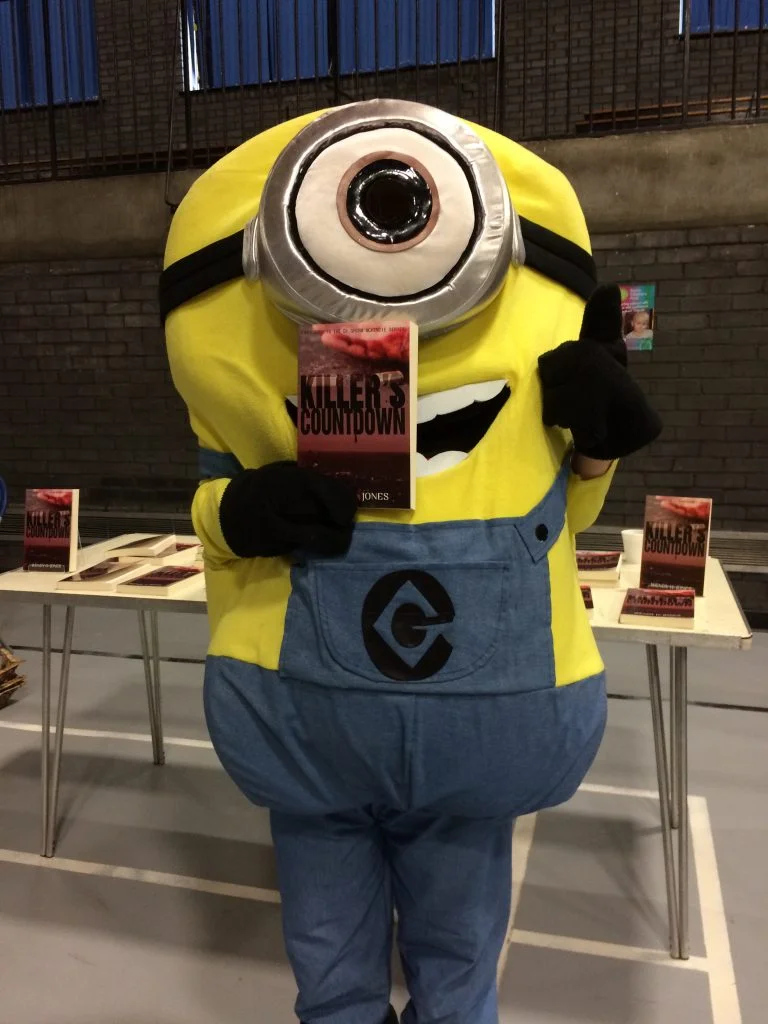Using social media successfully is a bit like Alice travelling through Looking-Glass World – to reach your goal, you shouldn't aim for the most obvious target. Instead, taking what might seem a less direct, more circuitous route might be more effective. Scottish self-published writer Wendy H Jones explains why overt marketing won't help you sell more books, but a more fun approach will, and offers four key rules for indie authors using social media.
As most people know, social media usage is growing and is now embedded into our lives. For many of us, using social media sites such as Facebook and Twitter is as natural as breathing.
As writers we use social media in different ways. The obvious one is to connect with family and friends as social media is about being social. We also use it to connect with fans. With our business hat on, it is also a useful promotional tool. This is where problems often start.
How NOT to Use Social Media
Many writers forget that it is called social media and not selling media. They join every group they can on Facebook and then post links to their books every day. This tips over into the realms of spam, and I have to say, I, and I am sure many others, then ignore their posts. Though the books may be good, they do not get the exposure the author had hoped for.So how can we use Social Media in a more positive way? Thankfully there are many ways.
First Rule of Social Media: Be, Er, Social!
The first is simply to be social. Engage with people as yourself, not as a writer. This doesn't mean you have to share every single thing about yourself and your family, but you need to decide what will work for you. I am social by nature and don't mind sharing what I am doing, within reason. I am sure no one is interested in what I have to eat unless, of course, I post a photo of a huge slice of gluten-free cheesecake. The interaction for this post was huge.
Second Rule: Be Sparing with Self-Promotion
So what about marketing? Are you a member of any real-life groups? Would you go in to the group, ask everyone there to buy your book, leave leaflets with a picture and a list of places they can buy, then leave? I don't think any one of us would. We would engage in conversation, get to know the members, and occasionally mention our books. Try this in the virtual world. If you do post about your books in groups, then spread it out, a few a day to different groups. Doing it all at once swamps friends’ news feeds.
Third Rule: Take Advantage of Fun Photo Opportunities
I take photos of my books in interesting places. I was recently at a craft fayre signing books. As you can see, I took a photo of a minion holding my first book. It was posted to social media with the caption, “Even Minions Read “Killer's Countdown”.” No links to buy, just a fun photo. Photos of a book launch are also a good way of getting the word out.
Fourth Rule: Help Others
A major part of social media is about helping others. Cheer them on when they are doing well and support them when they need a helping hand. It is about interaction, engagement and mutual support. Social sharing is powerful. However, if you share others’ books, do so because you want to, not because you expect anything in return.
Conclusion
Social media can be fun. You can make new friends and engage with fans in ways previously unknown. This is a privilege. Treat it as such and make the most of it.
OVER TO YOU What do's and don'ts would you add to Wendy's list? What are your pet hates/first loves on social media posts by authors? Join the conversation via the comments box!








I really like the idea of thinking about how you would address a group of people in person. That helps to put “proper” social behavior in perspective. When I’m in a public place and someone stuffs a flyer up my nose it ends up in “file 13” mainly because I didn’t ask for it. Again, the magic button appears to be connecting in some way to your specific audience.
This should be common sense, but I’ll mention it anyway. Don’t just automatically label someone a bad person just because they happen to like talking about their other interests, which may be different from writing.
I’ve had people border on harassing me just because I happen to have an opinion they disagree with, and a lot them also spend most of the time promoting their own work rather than actually interacting with fans.
I’ve had one that wrote this non-fiction book where she even threatened to block me, because omg I’d dare ask questions about her book. That’s not how you get fans people.
[…] Read her other social media rules here. […]
Thank you Wendy, I really enjoyed your article being a new writer it gave me so much great information
Thank you Wendy, I really enjoyed your article being a new writer it gave me so much information
Wendy, In four points, you summed up some main social media points. I, and several others, appreciate it. Good job.
Mark Elswick
Timely – for me! I’ve been dithering about blocking all notifications from a FB friend…not because she is promoting her own book (although she does to do that more than I’m cmfortable with) but because for the last two weeks, my feed has been inundated with notifications of ever, single time she retweets or shares somebody else’s book. It’s been coming in in batches of up to twenty posts in a space 20mins.
While I realise she’s being supportive of others in her writers’ network, the unfortunate effect is that in total, it amounts to a flood of spam – the opposite of her intent. I have no idea whether I should just block these ntices, or drop her a message.
My quandry is, if I do meassage her about the flood of notifications, chances are (this being the internet) she might think I’m not supportive of other writers, or just being sour, which is not the case at all. 🙁 I know people do go on promo blitzes sharing posts in groups etc on certain approved days, but this has been another beast altogether. What to do?
I wonder whether she’s changed some of her settings e.g. to share all her tweets on FB as well? If so, she may not realise how much stuff she’s putting out there, or the impact that it’s having. I’m sure you won’t be the only person who is finding it tiresome, and you’ll be doing her a favour by gently enquiring if that’s what’s happened. Or maybe without appearing to criticise, say you’ve noticed how much more active she is and ask her how much time it takes her whether she finds it’s selling more books. I bet it isn’t – and your questions might in themselves be enough to prompt her to rethink her strategy. Or just share this post. (We can delete your comment first, if you like!)
I agree with you Wendy on most points, but with that fun picture I would still have included a link to the books (Amazon?) page. With the automatically shortened links, it doesn’t look too pushy in my view. Also, social media users (i.e. all of us now, surely?) are lazy. There is so much output, if something catches your eye, you want the link to be there, not something you’d have to search for later. Very few potential readers on social media (i.e. buyers) will spend time searching for a way to buy your book.
My social media strategy is conversational marketing not pushy selling; however, I always have sales in the back of my mind and try to make it as easy as possible for people to find how to buy my books. The difficulty lies in getting the ‘call to action’ into your posts without shouting ‘Buy, buy, buy.’
Great post, thank you!
That’s a very good point Helena. Including links is crucial in order to maximise the potential for sales. However, I was a guest blogger for ALLi and the article is to inform rather than sell. However, seeing the books cover is good as it catches the attention and readers my buy in the future. I take your point though and is one I will remember
Thanks for an Interesting post that highlights the importance of polite marketing techniques on social media.
You are welcome Charles. If you treat social media friends with the same courtesy you extend to friends in the real world, then it goes a long way. Gd you enjoyed the post.
Yes, Wendy – clearly and succinctly put. I agree. Thanks for posting.
The term “social media” is anathema to most men. That’s why so many male writers are ditching it and going their own way. Anything with “social” in it is a put -off from the start. I
You raise a good point Christopher. It’s not something I’ve thought of before. Interesting.
This is probably the best article I’ve ever read on using social media effectively. Thank you for writing it, Wendy!
Thank you Ruth. I am glad you found it useful.